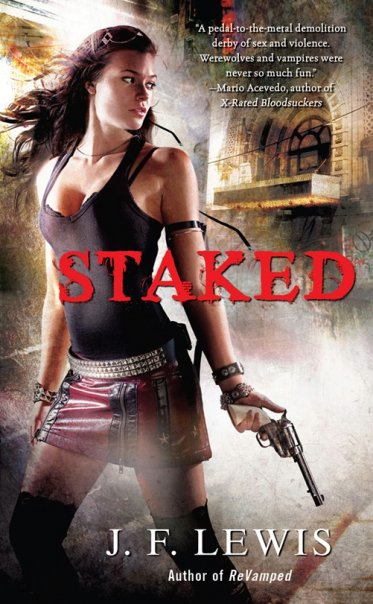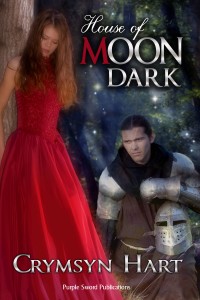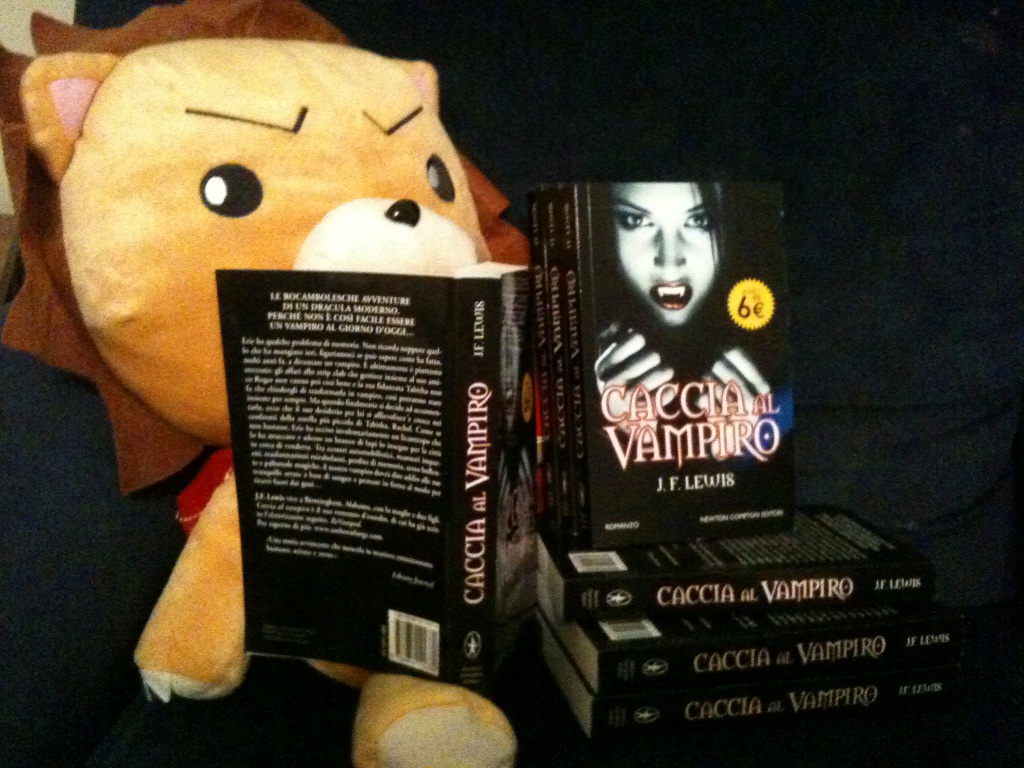 by Faith Hunter
by Faith Hunter
www.faithhunter.net
https://www.facebook.com/official.faith.hunter
https://www.facebook.com/janeyellowrock
Evan: Today at Witch Central, the interview/blog spot for all things witchy, hosted by the Everhart sisters, we are posting an interview with Jane Yellowrock, the Cherokee shape-shifter / skinwalker who hunts rogue-vampires for a living. This is from a taped interview, transposed to type for the blog, and where possible, parenthetical comments will be included for clarity.
Our interviewer is Molly Everhart Trueblood, a moon witch, and because of the sensitive nature of some of the questions—and answers—this blog will be a closed interview, available to only the supernatural community. No humans have been sent the password to the interview site, and if you have access, remember to share it only people who will appreciate paranormal! I’m Evan Trueblood, Molly’s husband. Welcome Molly and Jane. Take it away ladies.
Molly and Jane (speaking at once): Thank you Evan. Glad to be here.
Molly: And I have to give a special thanks to Evan Trueblood, for producing us today. The rumors circulating in the witch community that Evan is unhappy because of my friendship with Jane are well founded, as noted in the plot of BLOOD CROSS. His generosity today is exceptional.
Evan: (grumbles through his mike).
Molly: Jane, not everyone here knows what a Cherokee skinwalker, also known as a shape-changer or shape-shifter, is. And the myths that surround the Native American skinwalkers are violent and gruesome. Can you enlighten us?
Jane: Most of us prefer to be called American Indian, or AmIn, or by our tribal name, not Native American, which is a moniker probably dreamed up by some D.C. bureaucrat. I like to be called Cherokee. I haven’t done a lot of study about the western AmIn shape-changer mythos, like the Hopi tales, but what I’ve learned about the Eastern Cherokee skinwalker can be pretty awful, with age-related changes in dietary habits that are gruesome, tending toward … um … the consumption of human meat.
Molly: (groans in horror) So, they get old and start eating people?
Jane: Yeah, the tales are pretty nasty. But according to the oldest traditions of many tribes, skinwalkers were originally the tribal protectors and warriors. It was only after the white man came that their numbers began to decrease, and they started acting nutso, which makes me think that my subspecies of human may have been decimated by illness brought by Europeans.
Evan: (interjecting, sounding stern) Our apologies to the mental healthcare professionals and those suffering from any form of mental or emotional anguish.
Jane: Yeah, yeah, sorry. I guess there might be a more medically and socially acceptable diagnosis than nutso, but to get one, a shrink would have to spend time with someone who wanted to eat him, and in a lot less entertaining way than some Hollywood-created Hannibal Lector.
(Jane leans in, intent.) Skinwalkers are a magical subspecies of human, Evan, Molly. Very different from the were-creature mythos, who can adopt only one animal shape. Skinwalkers can adopt the shape of many different animals if certain conditions are met. For me to shift, I have to have some genetic material of the chosen animal, bones with some marrow is best, but teeth with some soft tissue works. And it’s easier if the genetic guidelines for size and mass are equal to the human making the change. Meaning that if the shifter weighs 125 pound in human form, then it’s easier to shift into a wolf or big-cat or other animal that weighed 125 pounds in real life.
Molly: But if you wanted to fly, to be a bird, and it weighed only 40 pounds, or if you needed to be a horse, and it weighed a thousand, what then?
Jane: (sounding hesitant) It’s possible to take mass from, or leave mass with, anything that contains no genetic material, like stone. But it’s dangerous. I don’t like to do it. When I dump mass, I leave something of myself behind, and not just body mass. The smaller brain capacity of smaller animals means that I have to store part of my consciousness—memory, spirit, whatever—in other parts of the animal or leave it behind in the stone. I never know if I’ll get all of myself back. And when I take on mass to change into a larger animal, I always wonder if I’ll drop it all, or get stuck with an extra hundred or so pounds of, well whatever I’d get stuck with.
Molly: Like an extra hundred pounds of stone. Well, if you get stone hard abs and bones hard as stone, it might be worth a little extra weight. (The girls laugh.)
Jane, you had a financially lucrative relationship with the Master Vampire of North Carolina, where you became the only vampire hunter to take down an entire rogue-vampire blood-family—that’s a mouthful, isn’t it?—as told by your writer, Faith Hunter, in the anthology titled Strange Brew. Tell our listeners what took you from your home in the Appalachians Mountains, near Asheville, North Carolina to New Orleans, Louisiana?
Jane: First, let’s clarify that I don’t kill just any vampire. I’m licensed to kill rogue vampires, and there are two kinds. Young rogues are vamps who were turned and not kept shackled long enough to cure, or ferment, or whatever they do to find sanity. This usually takes 10 years or so, during which time they’re under the care of, and dependant upon, their maker or sire. Old rogues are vamps suffering from the vamp form of dementia, which makes them a lot more dangerous than a young rogue, because an old vamp still has his mental functions, but his predatory instincts have gone whacko, and he—or she—has taken to violence.
There aren’t many people willing to take on the job of rogue-vamp hunter. I’d hazard to say that there aren’t 25 in North America and Central America together. And there aren’t that many sanctioned vamp-hunting gigs to be had. For a hunt to be legal, the local vamp council has to sanction the hunt and then call in a licensed hunter. So when the New Orleans council asked me to come for a job interview, I took the chance and made the trip. Katie Fonteneau conducted the interview for the vamp council and hired me. It was a lot of money, and it was a dangerous job. I earned every red cent I made on that one.
Molly: And what made this job so dangerous?
Jane: Whacked out vamps don’t usually eat their victims. This was an old-rogue with a preference for organ meat, livers were his cut of choice.
Molly: Eeeew. (more laughter) But that wasn’t all that made this job dangerous, was it?
Jane: No, there was a lot more. Spoilers, so skip the next sentence if you haven’t read SKINWALKER. The vamp in question turned out to be related to one of the most powerful vamps in the city.
Molly: And the whacked-out vamp, well, he wasn’t a vamp at all, was he?
Jane: (voice firm) I was hired to kill a vamp. The vamp council has issued a statement saying it was a vamp that got sick, and I took him out.
Molly: (Presses the point.) But it wasn’t a vamp, was it?
Jane: If I killed something that wasn’t a vamp, then I could, possibly, be accused of murder. So, it was a vamp, Molly, and that’s all I’m gonna say about it.
Molly: Okay, okay, but for our listeners and readers, there have been hints in this interview that tell exactly what the vamp turned out to be.
Change of subject. Tell me what happened in the vampire hunter community after you killed the vamp who was eating people—and vampires. Y’all. It was eating vampires too—in the party capital of the nation. And don’t fidget as if you won’t answer the question. Come on, Jane.
Okay. Our guest is never one to brag, so I’ll say it for her. There’s a website online for vampire hunters, and it lists contact info, number and difficulty of kills, website addresses, and a scorecard of sorts for each of the licensed hunters out there. It’s managed by a guy called Reach, or Reacher, a mysterious personage in the vamp-hunting community, who has his fingers in a lot of pies.
Our guest, Jane Yellowrock, hovered in the top three vampire hunters nationally for years, but after the photo of the thing she killed for the Vampire Council of New Orleans was posted to her website—and went viral, I might add—she moved firmly to the number one spot, and the price to hire her, moved up accordingly, am I right, Jane?
Jane: (mumbles) I knew I shouldn’t have agreed to do this interview. You’re going all Nancy Grace on me here, girlfriend.
Molly: But—another spoiler—the word in the supernatural community is that Leo Pellissier, Master of the City of New Orleans, is claiming that you, well, you murdered the insane vamp.
Jane: I didn’t murder anyone. I killed the vamp the council hired me to kill. If you read Skinwalker, you know the truth.
Molly: Okay, don’t get grumpy. Lets talk about your love life.
Jane: (laughing, covering her eyes) Oh, God. I knew not to do this interview. Let’s not talk about my love life. It’s so mixed up right now.
Molly: We witches are a predominately female community because our males don’t usually survive the childhood cancers they’re so prone to. So, we’re accustomed to marrying into the human community, having children with our human husbands, and passing along the witch gene only occasionally. With so few shapeshifters around, do you date humans?
Jane: I like humans, and yes, I’ve dated a few. Right now, I’m talking to a human, a blood-servant, and a vamp.
Molly: Anyone you want to tell us about?
Jane: No. No way.
Molly: Okay. Then tell us how the vampires relate to your scent.
Jane: (sounding relieved) Rogues recognize me as a fellow predator right off. I seem to provoke a response that’s primarily aggressive in them. But if they’re young enough, all they can think of is food, so they attack, wanting to kill or subdue and feed. Katie Fonteneau was the first sane vamp I ever met in person. When she got her first, good whiff of me, she attacked. Ditto with her boss, Leo Pellissier, Master of the City of New Orleans. But once he accepted me, the rest of them accepted me, and their perception of my scent changed. I’ve guessed it’s like a pride of lions. Once the alpha accepts the outsider, then the others will too. Now they say I smell like a combo of dessert and sexual challenge. Dangerous. They seem to like it.
Molly: (teasing) Tall, dark, and deadly. For our readers, Jane Yellowrock is six feet tall, has hip-length black hair, amber eyes, wears leather, and is armed and dangerous. Vampires like the way you smell. Okay, moving back to the subject of men. There are hints scattered about that Rick LaFleur is not quite human. Or more than human. Or maybe he is human and you liiiiike him. May we expect further enlightenment?
Jane: The answer to that question will be partially addressed in Mercy Blade, and will be addressed again in Raven Cursed. My writer is still working on that novel. Which means that I don’t know the answer, and for all I know, she might not know. She’s bad about leaving me hanging, you know?
Molly: So there’s a chance he is a skinwalker!
Jane: I didn’t say that, Molly-girl. Ricky Bo smells totally human, not like me, and not like what I remember of my kind, at all. Delectable to my Beast, but totally human.
Molly: I know some of us will be disappointed to hear that. But, that brings us to Beast. Jane is a being with two souls, one a skinwalker, one a mountain lion. What’s that like?
Jane: (sounding snarky) Crowded.
Molly: Come on Jane. Give me something here.
Jane: (sighs) It’s complicated. I have two conscious minds, each very different, trying to, learning to, get along in a body built for shape shifting. When we … merged, I guess is one way to put it … I got some of Beast’s strength and speed, even in my human form, and she got some of my language abilities. She talks to me inside my head when we’re in human form, and I can talk to her when we’re in cat form, though one of us is always alpha. It’s kind of … schizophrenic, I guess. But it works for us.
Molly: How about eating?
Jane: You’re not gonna like this. Especially your vegetarian listeners and readers. I like my steak rare. Beast likes hers on the hoof and freshly dead, raw, and still warm.
Molly: And your writer? The woman who tells your stories?
Jane: (sounding snarky again) Faith Hunter? She likes leafy greens and bean soup and yogurt. Wimp. The only thing we have in common is a love of fine teas, though I may let her teach me to whitewater kayak. It looks like fun, especially the Class III rivers. Oh – and she said to tell you that RAVEN CURSED, the fourth Jane Yellowrock novel, will be out in January 2011.
Molly: (laughing) Perfect timing for a plug Jane! I think that’s enough for today.
Jane Yellowrock, thank you for coming to talk to us. Evan Trueblood, producer extraordinaire and best hubby in the world, thank you.
Evan: It’s been a pleasure. And enlightening. And to all our listeners and readers, we hope you have a good witchy evening, and a good book to enjoy!

















